Are you feeling anxious about how to present your overqualification in a job application? It's a common concern; many job seekers worry that their extensive experience might raise red flags for potential employers. However, with the right approach, you can turn what seems like a drawback into an asset that highlights your adaptability and eagerness to contribute. Keep reading to discover effective strategies for addressing overqualification in your application!

Acknowledgment of Qualifications
Overqualification can be a double-edged sword in job applications, especially in competitive fields like technology or finance. Candidates with advanced degrees (Master's, PhD) or extensive experience (10+ years) may face skepticism from hiring managers concerned about job satisfaction and employee retention. Employers like Fortune 500 companies or startups often seek candidates that fit specific role expectations, which can lead to concerns about whether a highly qualified individual will find the position fulfilling. Moreover, candidates with a diverse skill set (project management, data analysis, software development) might be seen as overqualified for entry-level roles, potentially prompting employers to second-guess their hiring decision. Acknowledging these complexities allows applicants to tailor their narratives, emphasizing adaptability and enthusiasm for the specific role, thus mitigating overqualification concerns.
Explanation of Interest
Overqualification occurs when an applicant possesses more experience, education, or skills than the position requires. This phenomenon can create concerns for potential employers, especially regarding job retention and salary expectations. Addressing overqualification in a job application is crucial for demonstrating genuine interest and commitment to the role. A proactive approach involves explaining motivations such as passion for the specific industry or company values, a desire for a more balanced work-life schedule, or an eagerness to contribute to a team-oriented environment. Highlighting adaptability, willingness to learn, and the potential to bring innovative ideas to the position can also alleviate employer concerns. By framing overqualification positively, candidates can position themselves as valuable assets rather than liabilities in the hiring process.
Alignment with Company Goals
Overqualified candidates often possess advanced skills and extensive experience that exceed the basic requirements of a job. This situation can raise concerns for employers regarding retention and job satisfaction. Companies may fear that highly qualified individuals, such as those with master's degrees or over a decade of industry experience, might feel unchallenged in roles demanding less expertise. However, aligning such candidates with the company's strategic goals can leverage their extensive background to enhance team performance and drive innovation. For instance, organizations in competitive sectors, like technology or healthcare, benefit from the insights and leadership skills that seasoned professionals bring, ultimately improving project outcomes and fostering a culture of continuous improvement. By presenting a well-rounded approach to addressing overqualification, organizations can transform potential concerns into valuable contributions.
Adaptability and Flexibility
Overqualified candidates often possess extensive experience and advanced skills that can shape their approach to roles in dynamic environments. They can adapt to different workplace cultures, tools, and processes, ensuring quick integration into teams. For instance, professionals with expertise in project management software like Asana or Trello navigate cross-functional tasks efficiently, demonstrating flexibility in managing diverse projects. Additionally, their continuous learning mindset--reflected in certifications from platforms such as Coursera or LinkedIn Learning--enables them to remain open to new techniques and trends, thereby enhancing team collaboration. Ultimately, these individuals can contribute significantly by leveraging their backgrounds while embracing evolving organizational needs.
Long-term Commitment Potential
Overqualification often arises when candidates possess extensive education and diverse experience compared to the role's requirements. Companies such as Google and IBM may perceive it as a risk for long-term commitment. Prospective employees can emphasize their intention to contribute positively and grow alongside the organization, illustrating a willingness to adapt despite a robust background. Highlighting examples of previous positions that demonstrate dedication to long-term projects can further mitigate concerns. Candidates should assure hiring managers of their commitment to embracing the specific responsibilities of the role, fostering an image of loyalty and stability essential for positions in fast-paced industries.
Letter Template For Addressing Overqualification In Job Application Samples
Letter template of addressing overqualification concerns in a job application.
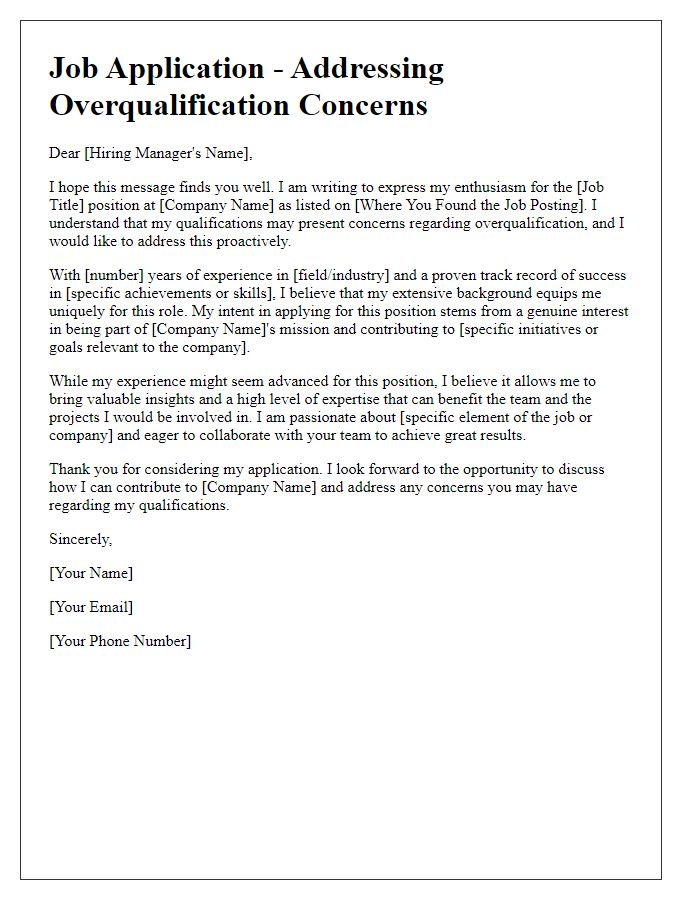
Letter template of mitigating overqualification in your job application.
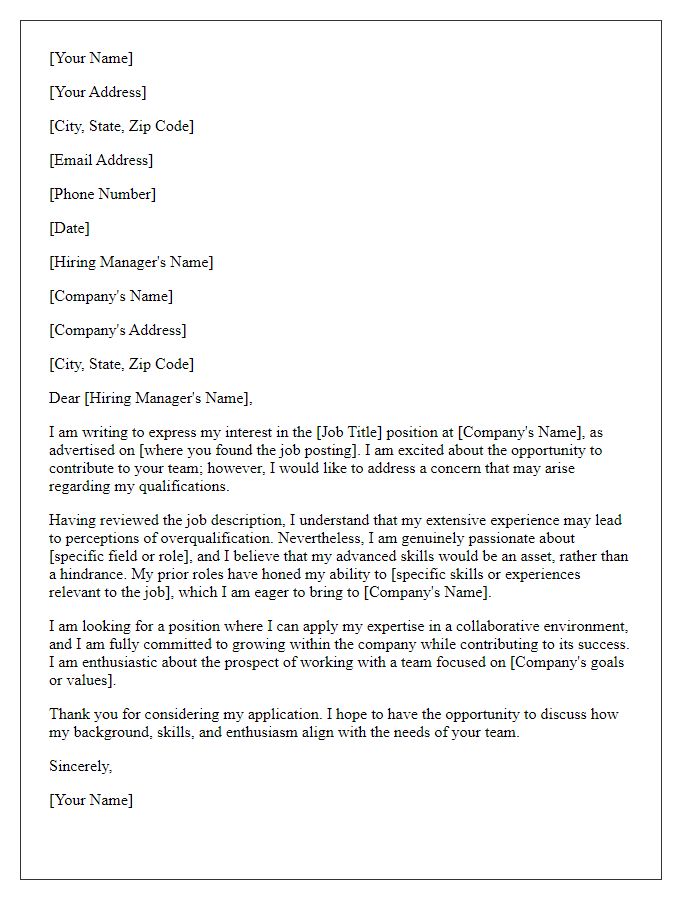
Letter template of acknowledging overqualification while applying for a position.
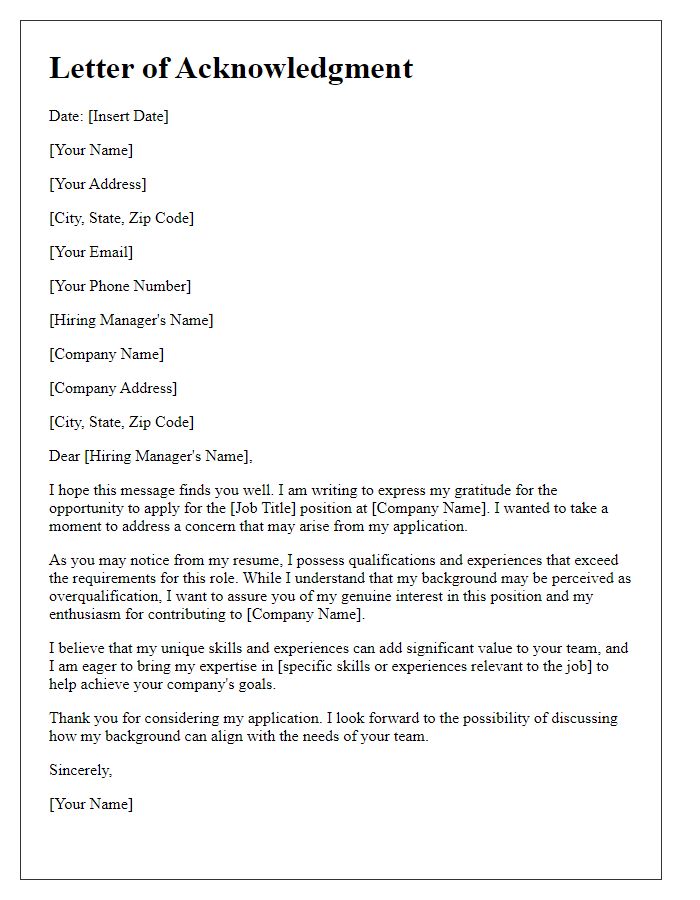
Letter template of providing context for overqualification in your application.
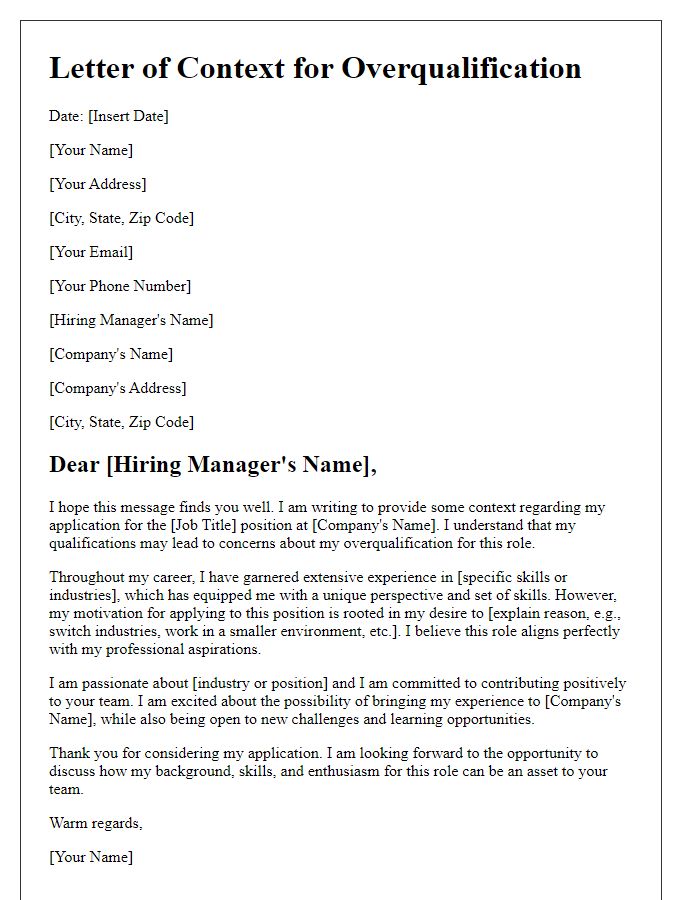
Letter template of explaining your overqualification in a job application.
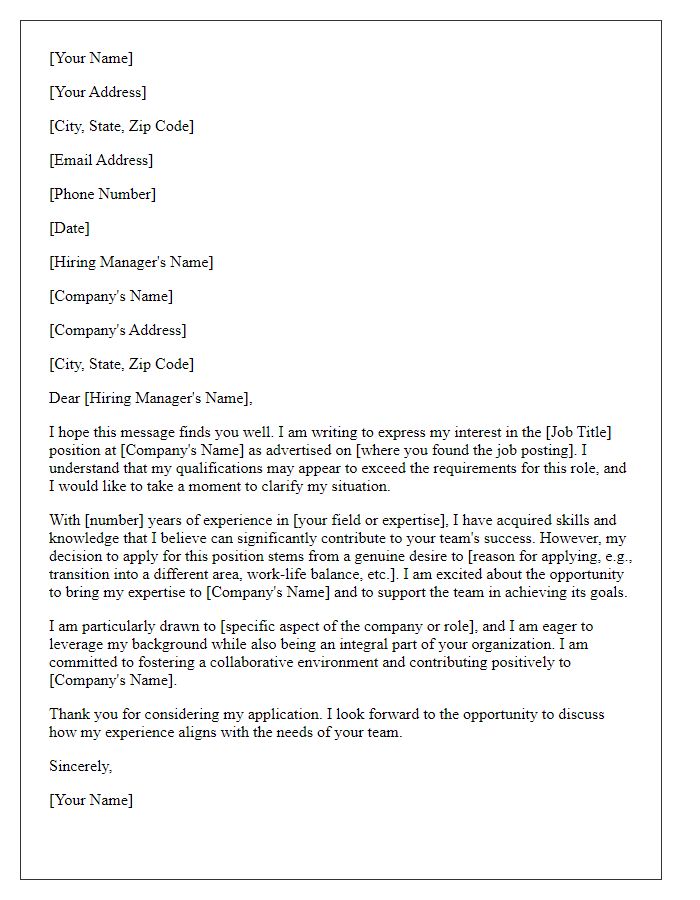
Letter template of justifying overqualification in an employment letter.
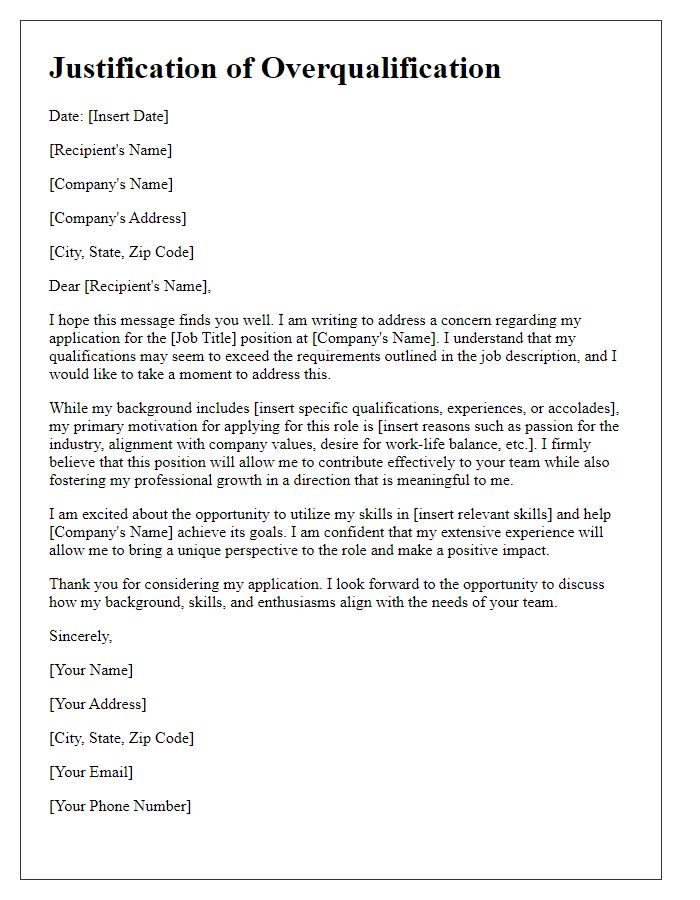
Letter template of responding to overqualification in a job application.
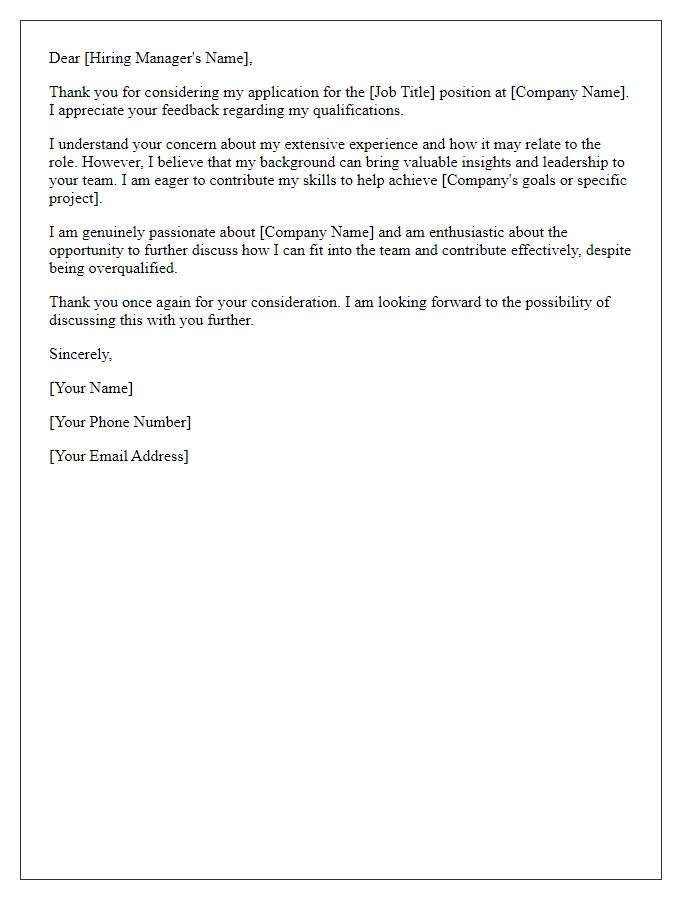

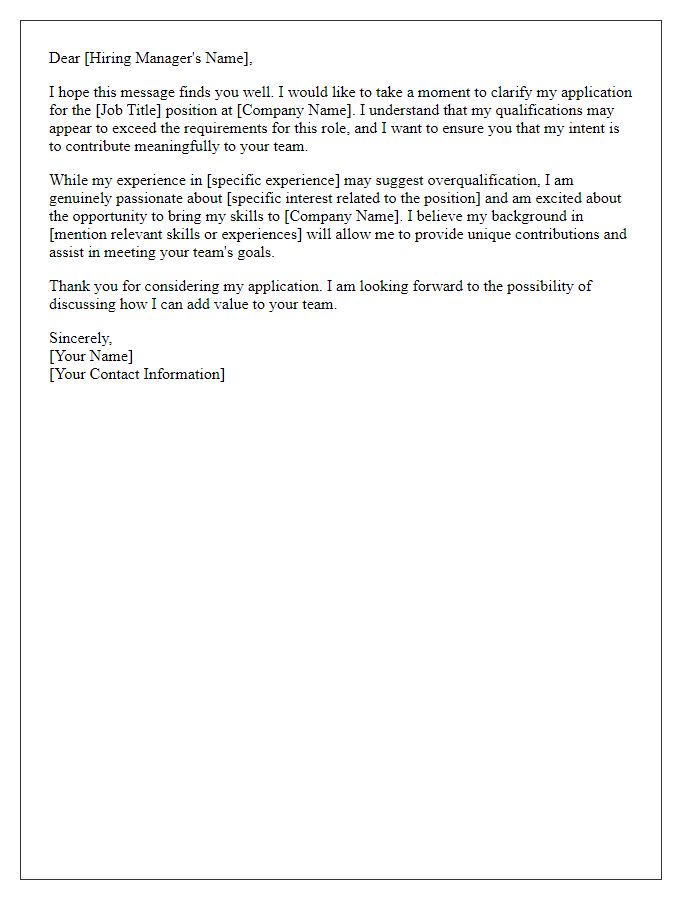
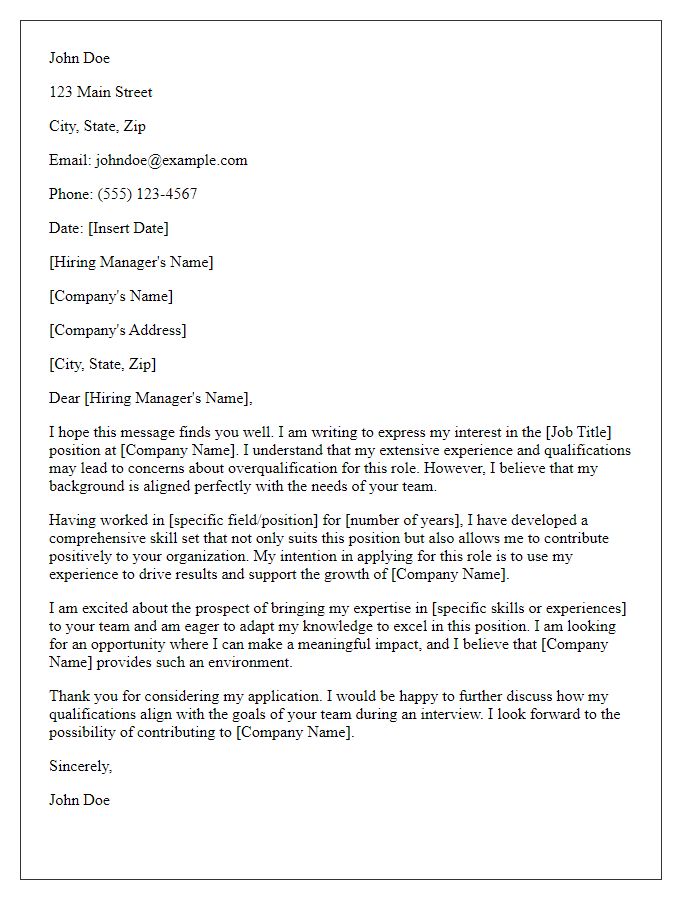
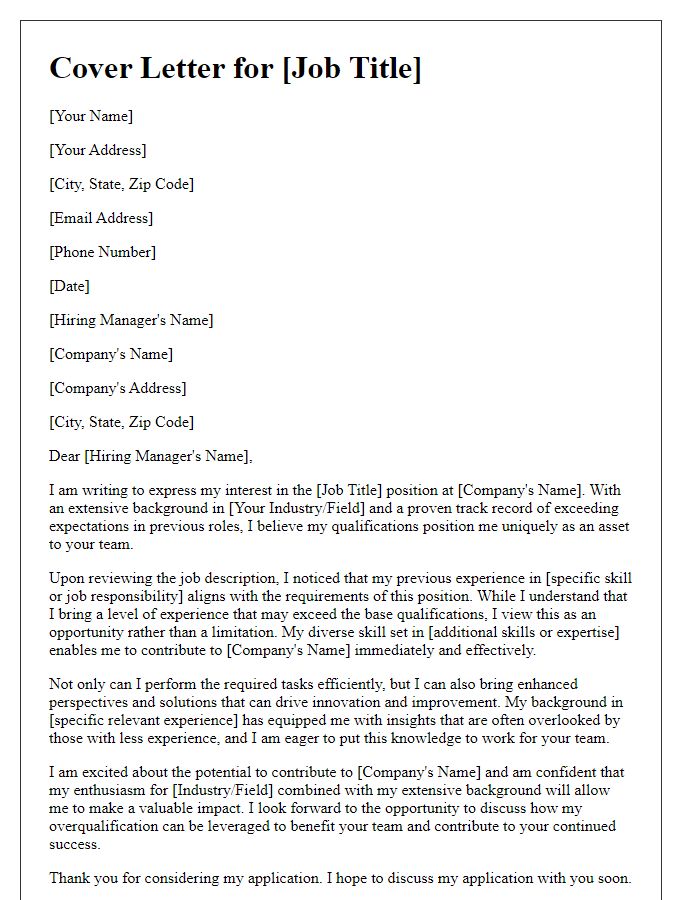


Comments